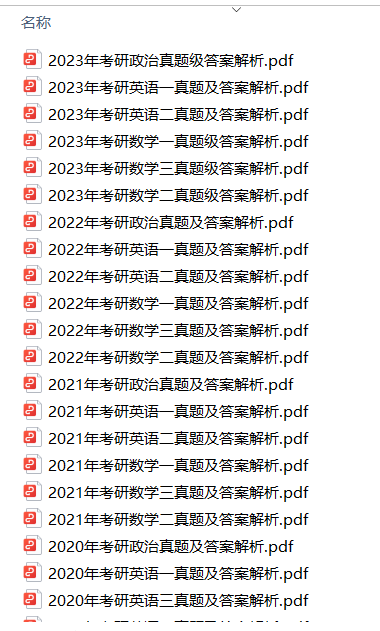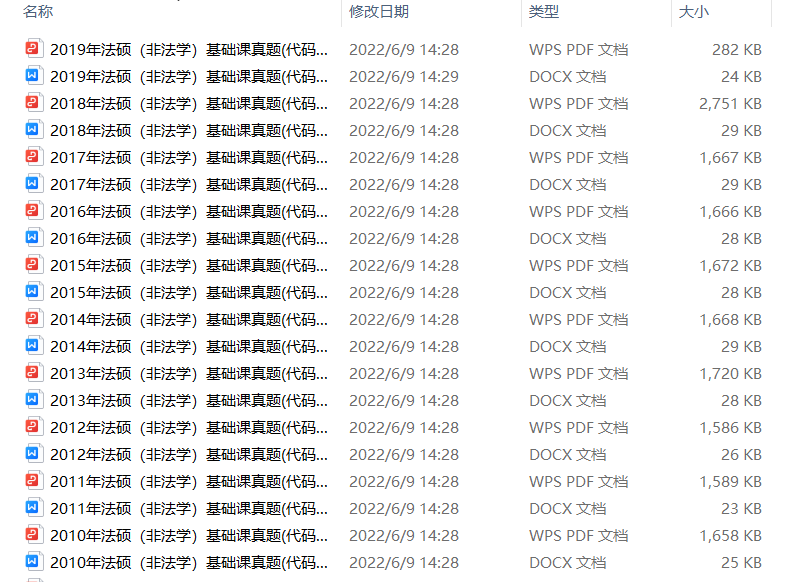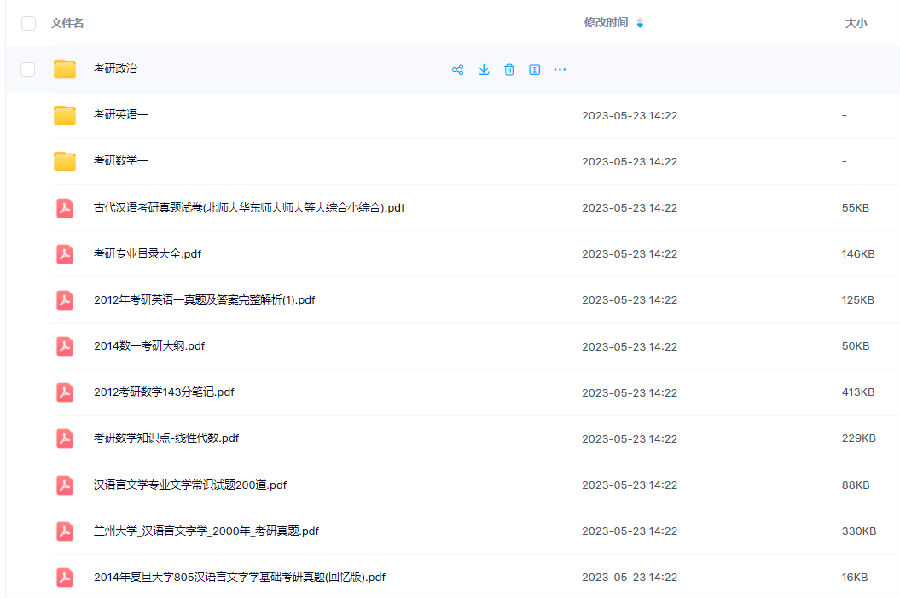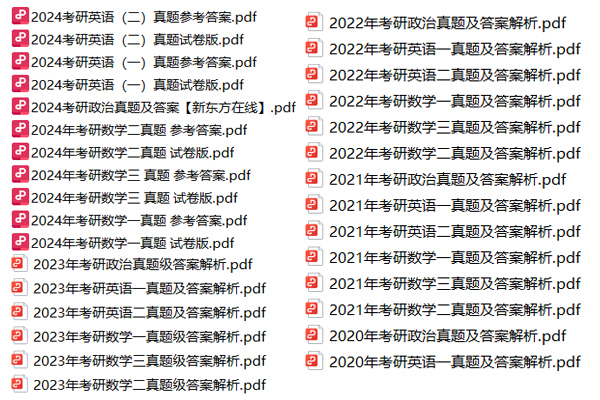特惠-26考研冲刺
特惠-27考研课
双证-在职硕士
免联考-同等学力
复试分数线
26复试全面指导
模拟复试面试
26考研-全套真题
26考研估分
保研-路线图
27考研-智能择校
27考研-英语测评
27考研-新大纲对比
热门-计算机择校

扫码加入训练营
牢记核心词
学习得礼盒
暑期集训来了,如何在暑期两个月创造出双倍的价值是每个考生想要达到的目标。这就需要加倍的努力和科学的规划了。英语方面的复习,大家要持续性背单词,阅读、写作及翻译要多加练习,总结方法技巧,活学活用。下面新东方在线和大家分享医学类的阅读模拟题,大家不妨集中练习,提升阅读速度和做题技巧。
2016考研英语阅读暑期训练:医学类(4)
When Ellen M. Roche, 24, volunteered for the asthma experiment, she didn't expect to benefit from it——except for the $365 she'd be paid. Unlike clinical trials, in which most patients hope that an experimental therapy will help them, this study was designed just to answer a basic question: how does the way a normal lung reacts to irritants shed light on how an asthmatic lung responds? To find out, scientists led by Dr. Alkis Togias of Johns Hopkins University had Roche and other healthy volunteers inhale a drug called hexamethonium. Almost immediately Roche began to cough and feel short of breath. Within weeks her lungs failed and her kidneys shut down. On June 2 Roche died——a death made more tragic by the possibility that it was preventable. Last week the federal Office for Human Research Protections (OHRP) ruled that Hopkins's system for protecting human subjects is so flawed that virtually all its U.S.-supported research had to stop.
The worst part is that Hopkins, one of the nation's premier medical institutions, is not alone. Two years ago the inspector general of the Department of Health and Human Services warned that the system safeguarding human subjects is in danger of a meltdown. The boards that review proposed studies are overburdened, understaffed and shot through with conflicts of interest. Oversight is so porous that no one knows how many people volunteer to be human guinea pigs (21 million a year is an educated guess), how many are hurt or how many die. “Thousands of deaths are never reported, and adverse events in the tens of thousands are not reported,” says Adil Shamoo, a member of the National Human Research Protections Advisory Committee and professor at the University of Maryland. Greg Koski, head of OHRP, has called the clinical-trials system “dysfunctional.”
The OHRP findings on Hopkins are nothing short of devastating. After a three-day inspection last week, OHRP concluded that the Hopkins scientists failed to get information on the link between hexamethonium and lung toxicity, even though data were available via “routine” Internet searches and in textbooks. The drug is not approved for use in humans; the hexa-methonium Togias used was labeled [F]OR LABORATORY USE ONLY. The review board, OHRP charges, never asked for data on the safety of inhaled hexamethonium in people. The consent form that Roche signed states nowhere that hexamethonium is not approved by the FDA (the form describes it as a “medication”) and didn't warn about possible lung toxicity.
Hopkins itself concluded that the review board did not do all it could to protect the volunteers, and suspended all 10 of Togias's studies. Still, the university——whose $301 million in federal grants for 2,000 human studies made it the largest recipient of government research money last year——is seething. “Hopkins has had over 100 years of doing clinical trials,” says Dr. Edward Miller, CEO of Johns Hopkins Medicine. “We have had one death in all of those years. We would have done anything in the world to prevent that death, but [suspending the studies] seems out of proportion.” Hopkins calls the shutdown of its experiments “unwarranted, unnecessary, paralyzing and precipitous.” OHRP is letting trials continue “where it is in the best interests” of subjects. The rest of the studies can resume once Hopkins submits a plan to restructure its system for protecting research subjects. How quickly that happens, says a government spokesman, depends on Hopkins.
注(1):本文选自Newsweek; 7/30/2001, p36;
注(2):本文习题命题模仿对象2005年真题Text 1;
1. In the opening paragraph, the author introduces his topic by
[A]explaining a phenomenon
[B]justifying an assumption
[C]stating an incident
[D]making a comparison
2. The statement “The OHRP findings on Hopkins are nothing short of devastating.”(Line 1, Paragraph 3) implies that
[A]The OHRP findings on Hopkins are much too impressive.
[B]The OHRP findings on Hopkins are much too shocking.
[C]The OHRP findings on Hopkins are much too convincing.
[D]The OHRP findings on Hopkins are much too striking.
3. The main reasons for Roche‘s death are as following, except that _______.
[A]the protecting system hasn‘t been set up
[B]the review board has neglected their duty
[C]the research team was not responsible enough for its volunteers
[D]the possibility of lung toxicity was overlooked
4. The OHRP has found that
[A]Hopkins has loose control over the experiment.
[B]the volunteers knew nothing about the experiment.
[C]there is something wrong with every aspect of the experiment.
[D]there exist many hidden troubles in human subjects safeguarding system.
5. What can we infer from the last paragraph?
[A]Hopkins had no fault in this accident.
[B]Hopkins seemed not to quite agree with The OHRP
[C]Togias's studies shouldn‘t be suspended.
[D]Hopkins wanted to begin their experiments as soon as possible.
答案:CBACB
【英语阅读资料】这里有↑↑↑

 资料下载
资料下载
2014年-2025年考研历年真题汇总
发布时间:2024-04-25扫码添加【考研班主任】
即可领取资料包
考研大纲PDF电子版下载-历年(附解析)
发布时间:2024-04-25扫码添加【考研班主任】
即可领取资料包
2026年考研政数英备考资料zip压缩包
发布时间:2024-04-25扫码添加【考研班主任】
即可领取资料包
考研英语大纲词汇5500打印版(基础必备)
发布时间:2024-04-25扫码添加【考研班主任】
即可领取资料包
新东方在线考试模拟题【12套】
发布时间:2024-04-25扫码添加【考研班主任】
即可领取资料包
2026年考研专业课知识点总结
发布时间:2024-04-25扫码添加【考研班主任】
即可领取资料包
新东方考研资料下载地址
发布时间:2023-05-17新东方在线考研资料合集
下载方式:微信扫码,获取网盘链接

目录:
1.2013-2023年近10年政数英真题及解析PDF版(新东方)
2.2013-2023年专业课考试历年真题及解析PDF版
3.24考研复习备考资料大合集:大纲+备考资料+词汇书+考前押题+自命题
资料介绍:
1.2013-2023年近10年政数英真题及解析PDF版(新东方)
 、
、
2.2013-2023年专业课考试历年真题及解析PDF版


3.24考研复习备考资料大合集

3.24考研复习备考资料:考研大纲

3.24考研复习备考资料:政数英备考资料+自命题真题

------------------
考研备考过程中,尤其是专业课部分,参考往年的考试真题,对于我们的复习有更好的帮助。北京大学考研真题资料都有哪些?小编为大家进行了汇总。
北京大学考研真题资料-公共课

北京大学考研真题资料-专业课


以上就是关于“北京大学考研真题资料下载(历年汇总)”的整理,更多考研资料下载,请关注微信获取下载地址。
2024考研公共课必背知识点汇总
发布时间:2023-01-03扫码添加【考研班主任】
即可领取资料包
2013-2023考研历年真题汇总
发布时间:2023-01-03扫码添加【考研班主任】
即可领取资料包
考研英语大纲词汇(PDF可打印)
发布时间:2023-01-03扫码添加【考研班主任】
即可领取资料包
2024考研专业课知识点总结
发布时间:2023-01-03扫码添加【考研班主任】
即可领取资料包
2023考研政治 内部押题 PDF
发布时间:2022-11-16扫码添加【考研班主任】
即可领取资料包
徐涛:23考研预测六套卷
发布时间:2022-11-16扫码添加【考研班主任】
即可领取资料包
考研政数英冲刺资料最新整理
发布时间:2022-11-16扫码添加【考研班主任】
即可领取资料包
23考研答题卡模板打印版
发布时间:2022-11-16扫码添加【考研班主任】
即可领取资料包
2023考研大纲词汇5500PDF电子版
发布时间:2022-07-28扫码添加【考研班主任】
即可领取资料包
考研历年真题(公共课+专业课)
发布时间:2022-07-28扫码添加【考研班主任】
即可领取资料包
考研英语阅读100篇附解析及答案
发布时间:2022-01-07扫码添加【考研班主任】
即可领取资料包
新东方考研学霸笔记整理(打印版)
发布时间:2022-01-07扫码添加【考研班主任】
即可领取资料包
2001-2021年考研英语真题答案(可打印版)
发布时间:2022-01-07扫码添加【考研班主任】
即可领取资料包
考研英语词汇5500(完整版下载)
发布时间:2022-01-07扫码添加【考研班主任】
即可领取资料包
2022考研政审表模板精选10套
发布时间:2022-01-07扫码添加【考研班主任】
即可领取资料包
历年考研真题及答案 下载
发布时间:2021-12-09扫码添加【考研班主任】
即可领取资料包
考研政审表模板汇总
发布时间:2020-06-17扫码添加【考研班主任】
即可领取资料包
近5年考研英语真题汇总
发布时间:2020-06-17扫码添加【考研班主任】
即可领取资料包
考研英语大纲词汇5500
发布时间:2020-06-17扫码添加【考研班主任】
即可领取资料包
2022考研12大学科专业排名汇总
发布时间:2019-11-21扫码添加【考研班主任】
即可领取资料包
2023考研政治复习备考资料【珍藏版】
发布时间:2019-11-21扫码添加【考研班主任】
即可领取资料包
考研英语万能模板+必备词汇+范文
发布时间:2019-11-21扫码添加【考研班主任】
即可领取资料包
考研数学一、二、三历年真题整理
发布时间:2019-11-21扫码添加【考研班主任】
即可领取资料包

添加班主任领资料
添加考研班主任
免费领取考研历年真题等复习干货资料

 推荐阅读
推荐阅读
为了让考研的同学更高效地复习考研英语,新东方在线考研频道整理了“考研英语1阅读错几个后的复习计划”,考研的同学可以了解一下,希望对大家有所帮助。
为了让考研的同学更高效地复习考研英语,新东方在线考研频道整理了“考研英语二阅读篇数及题型分析”,考研的同学可以了解一下,希望对大家有所帮助。
为了让考研的同学更高效地复习考研英语,新东方在线考研频道整理了“考研英语阅读理解的总结与反思”,考研的同学可以了解一下,希望对大家有所帮助。
来源 : 网络 2025-06-13 08:02:00 关键字 : 考研英语阅读理解
为了让考研的同学更高效地复习考研英语,新东方在线考研频道整理了“提高考研英语一阅读理解的五大策略”,考研的同学可以了解一下,希望对大家有所帮助。
为了让考研的同学更高效地复习考研英语,新东方在线考研频道整理了“探索考研英语阅读文章的逻辑结构”,考研的同学可以了解一下,希望对大家有所帮助。
来源 : 网络 2025-06-12 08:03:00 关键字 : 考研英语阅读

 资料下载
资料下载
扫码添加【考研班主任】
即可领取资料包
扫码添加【考研班主任】
即可领取资料包
扫码添加【考研班主任】
即可领取资料包
扫码添加【考研班主任】
即可领取资料包
扫码添加【考研班主任】
即可领取资料包
扫码添加【考研班主任】
即可领取资料包
新东方在线考研资料合集
下载方式:微信扫码,获取网盘链接

目录:
1.2013-2023年近10年政数英真题及解析PDF版(新东方)
2.2013-2023年专业课考试历年真题及解析PDF版
3.24考研复习备考资料大合集:大纲+备考资料+词汇书+考前押题+自命题
资料介绍:
1.2013-2023年近10年政数英真题及解析PDF版(新东方)
 、
、
2.2013-2023年专业课考试历年真题及解析PDF版


3.24考研复习备考资料大合集

3.24考研复习备考资料:考研大纲

3.24考研复习备考资料:政数英备考资料+自命题真题

------------------
考研备考过程中,尤其是专业课部分,参考往年的考试真题,对于我们的复习有更好的帮助。北京大学考研真题资料都有哪些?小编为大家进行了汇总。
北京大学考研真题资料-公共课

北京大学考研真题资料-专业课


以上就是关于“北京大学考研真题资料下载(历年汇总)”的整理,更多考研资料下载,请关注微信获取下载地址。
扫码添加【考研班主任】
即可领取资料包
扫码添加【考研班主任】
即可领取资料包
扫码添加【考研班主任】
即可领取资料包
扫码添加【考研班主任】
即可领取资料包
扫码添加【考研班主任】
即可领取资料包
扫码添加【考研班主任】
即可领取资料包
扫码添加【考研班主任】
即可领取资料包
扫码添加【考研班主任】
即可领取资料包
扫码添加【考研班主任】
即可领取资料包
扫码添加【考研班主任】
即可领取资料包
扫码添加【考研班主任】
即可领取资料包
扫码添加【考研班主任】
即可领取资料包
扫码添加【考研班主任】
即可领取资料包
扫码添加【考研班主任】
即可领取资料包
扫码添加【考研班主任】
即可领取资料包
扫码添加【考研班主任】
即可领取资料包
扫码添加【考研班主任】
即可领取资料包
扫码添加【考研班主任】
即可领取资料包
扫码添加【考研班主任】
即可领取资料包
扫码添加【考研班主任】
即可领取资料包
扫码添加【考研班主任】
即可领取资料包
扫码添加【考研班主任】
即可领取资料包
扫码添加【考研班主任】
即可领取资料包

 阅读排行榜
阅读排行榜
 相关内容
相关内容